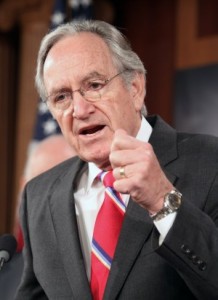CLC press release: Tobacco Companies Should Prevent Child Labor in US Tobacco Farming—Letter to tobacco CEOs from 54 leading health, children’s, and labor organizations
For immediate release: June 26, 2014
Contact: Reid Maki, (202) 207-2820, reidm@nclnet.org
(Washington, DC) Over 50 US-based organizations called on leading tobacco companies to address hazardous child labor in US tobacco farming in a letter released today. The groups expressed alarm that children are risking acute nicotine poisoning and other health and safety hazards in US tobacco fields.
“Children in the US can’t legally buy cigarettes, but children working in tobacco fields are suffering acute nicotine poisoning,” said Sally Greenberg, co-chair of the Child Labor Coalition (CLC) and executive director of the National Consumers League. “Tobacco companies need to ensure that their products are not made with child labor.”
The organizations, representing millions of teachers, healthcare professionals, workers, farmworkers, and advocates concerned about the safety, education, and welfare of children, called on the chief executive officers of the top ten global tobacco companies and tobacco leaf merchants to adopt and implement policies that prohibit children under age 18 from hazardous work in tobacco farming, including direct contact with tobacco.
A recent report, “Tobacco’s Hidden Children: Hazardous Child Labor in United States Tobacco Farming,” by Human Rights Watch found that of 141 child tobacco workers interviewed in North Carolina, Kentucky, Virginia and Tennessee, three-quarters reported getting sick while working on US tobacco farms. Many of their symptoms—nausea, vomiting, loss of appetite, headaches, and dizziness—are consistent with acute nicotine poisoning.
“Child tobacco workers also reported working long hours, often in extreme heat and without protective gear,” noted Dr. Lorretta Johnson, co-chair of the CLC and the secretary-treasurer of the American Federation of Teachers. “Unfortunately, child labor is a common practice in the United States, and it’s legal. We stand with Human Rights Watch, Sen. Tom Harkin, the CLC and many others to call attention to the great dangers faced by children working on tobacco farms, and we urge the world’s largest tobacco companies to take measures to end hazardous child labor in tobacco farming.”
Under US law, children as young as 12 can work for hire on any farm with their parent’s permission. Even younger children can work on small farms.
“Agriculture is already the most dangerous area of employment open to children in the US,” said Norma Flores López, the director of the Children in the Fields Campaign for the Association of Farmworker Opportunity Programs and the chair of the CLC’s domestic issues committee. “Tobacco farming is particularly hazardous because of nicotine exposure and toxic pesticides. We worry about children developing cancer—and neurological and reproductive health problems—linked to the exposure of toxic pesticides. We also need to prevent injuries from working with machinery and dangerous tools, lifting heavy loads, and climbing to significant heights in curing barns.”
In addition to adopting effective child labor policies, the organizations also urged tobacco companies to:
- include provisions prohibiting child labor in all contracts with growers and suppliers that child labor is prohibited;
- implement both internal and external monitoring to ensure effective enforcement of child labor policies;
- provide support to remediate child labor in tobacco, including educational, recreational, and vocational programs for children in areas where the companies source tobacco; and
- establish and enforce policies that will ensure fair compensation for adult tobacco workers so that they receive a living wage.
The letter was addressed to the chief executive officers of Altria Group, Inc., British American Tobacco PLC, China National Tobacco, Imperial Tobacco Group PLC, Japan Tobacco Inc., Lorillard, Inc., Philip Morris International Inc., Reynolds American Inc., Alliance One International, Inc., and Universal Corporation.
The letter with full list of signers can be found here.
###
About the Child Labor Coalition
The Child Labor Coalition represents consumers, labor unions, educators, human rights and labor rights groups, child advocacy groups, and religious and women’s groups. It was established in 1989, and is co-chaired by the National Consumers League and the American Federation of Teachers. Its mission is to protect working youth and to promote legislation, programs, and initiatives to end child labor exploitation in the United States and abroad [The CLC’s website and membership list can be found at www.stopchildlabor.org ].




